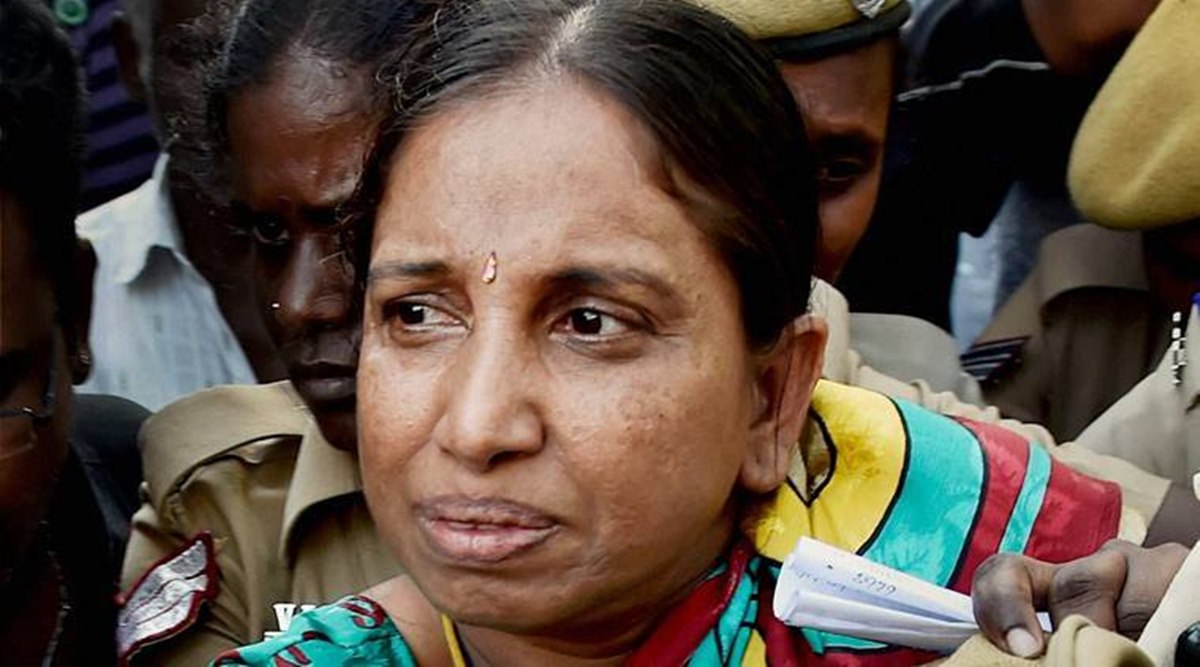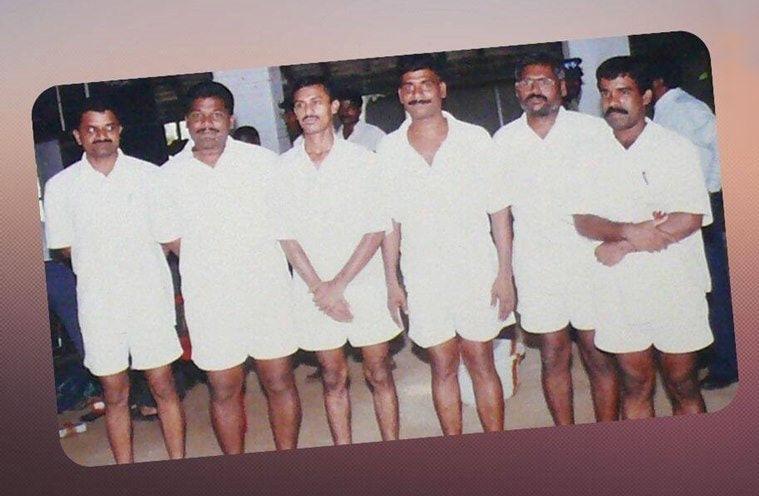 Nalini Sriharan (PTI Photo/File)
Nalini Sriharan (PTI Photo/File)The Supreme Court on Friday set free the remaining six convicts in the Rajiv Gandhi assassination case, extending to them the benefit of its order releasing their co-convict A G Perarivalan.
A bench of Justices B R Gavai and B V Nagarathna ordered that “the appellants are directed to be set at liberty if not required in any other matter”.
Those who have been allowed premature release are Nalini Sriharan, Santhan alias Raviraj, Murugan, Robert Payas, Jayakumar and Ravichandran alias Ravi.
The court ordered Perarivalan’s release on May 18 exercising its powers under Article 142 of the Constitution.
The court said Friday that the same order would apply to all the six others convicted in the assassination of the former prime minister as well. They had spent over three decades in jail, during which period, it said, their conduct was satisfactory and they had enrolled in various courses.
 From left: Perarivalan, Payas, Ravichandran, Jayakumar, Santhan, Murugan. (Express archive)
From left: Perarivalan, Payas, Ravichandran, Jayakumar, Santhan, Murugan. (Express archive) In 2018, the then AIADMK government in Tamil Nadu recommended all the seven convicts for premature release, but the decision was kept pending.
In February 2021, the Centre told the court that the governor had “considered all the facts on record and, after perusal of the relevant documents, recorded that the Hon’ble President of India is the appropriate competent authority to deal with the…request for remittance”.
While deciding Perarivalan’s case, the court disapproved of the governor sending the state cabinet’s recommendation to the President. “No provision under the Constitution has been pointed out to us nor any satisfactory response tendered as to the source of the governor’s power to refer a recommendation made by the state cabinet to the President of India,” the court said, adding that the governor’s “action is contrary to the constitutional scheme”.
The apex court refused to accept the Centre’s argument that, as laid down by the court in a 2014 decision (Union of India vs Sriharan), the “appropriate government” to decide on the remission of a sentence in matters to which the executive power of the Union extends is the Union government.
This is “incorrect”, the court said, adding that where both the state and the Centre had the power to make laws, the Union government’s power would take precedence only if “executive power had been expressly conferred on the Union under the Constitution or the law made by Parliament, failing which the executive power of the state remained intact”.